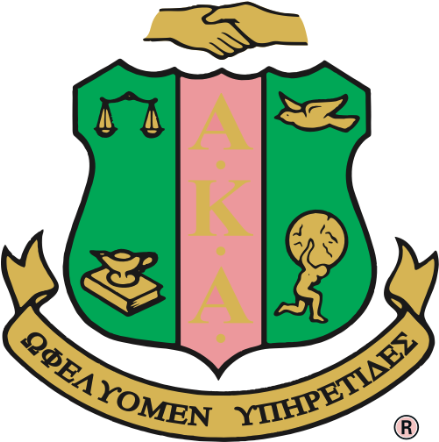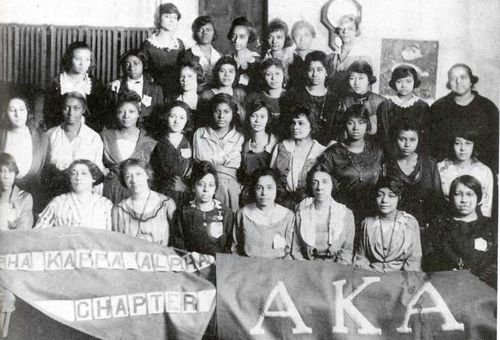Alpha Kappa Alpha History
Confined to what she called “a small circumscribed life” in the segregated and male-dominated milieu that characterized the early 1900s, Howard University co-ed Ethel Hedgeman dreamed of creating a support network for women with like minds coming together for mutual uplift, and coalescing their talents and strengths for the benefit of others. In 1908, her vision crystallized as Alpha Kappa Alpha, the first Negro Greek-letter sorority. Five years later (1913), lead incorporator Nellie Quander ensured Alpha Kappa Alpha’s perpetuity through incorporation in the District of Columbia. Together with eight other coeds at the mecca for Negro education, Hedgeman crafted a design that not only fostered interaction, stimulation, and ethical growth among members; but also provided hope for the masses.
From the core group of nine at Howard, AKA has grown into a force of more than 265,000 collegiate members and alumnae, constituting 972 chapters in 42 states, the District of Columbia, the US Virgin Islands, the Bahamas, Germany, South Korea, Japan, Liberia, and Canada. Because they believed that Negro college women represented “the highest—more education, more enlightenment, and more of almost everything that the great mass of Negroes never had— Hedgeman and her cohorts worked to honor what she called “an everlasting debt to raise them (Negroes) up and to make them better.” For more than a century, the Alpha Kappa Alpha Sisterhood has fulfilled that obligation by becoming an indomitable force for good in their communities, state, nation, and the world. The Alpha Kappa Alpha program today still reflects the communal consciousness steeped in the AKA tradition and embodied in AKA’s credo, “To be supreme in service to all mankind.”
Cultural awareness and social advocacy marked Alpha Kappa Alpha’s infancy, but within one year (1914) of acquiring corporate status, AKA had also made its mark on education, establishing a scholarship award. The programming was a prelude to the thousands of pioneering and enduring initiatives that eventually defined the Alpha Kappa Alpha brand. Through the years, Alpha Kappa Alpha has used the Sisterhood as a grand lever to raise the status of African-Americans, particularly girls and women. AKA has enriched minds and encouraged life-long learning; provided aid for the poor, the sick, and underserved; initiated social action to advance human and civil rights; worked collaboratively with other groups to maximize outreach on progressive endeavors; and continually produced leaders to continue its credo of service.
To learn more about Alpha Kappa Alpha Sorority Incorporated visit www.aka.1908.com
To learn more about AKA Far Western Region visit www.aka1908.com/farwestern


